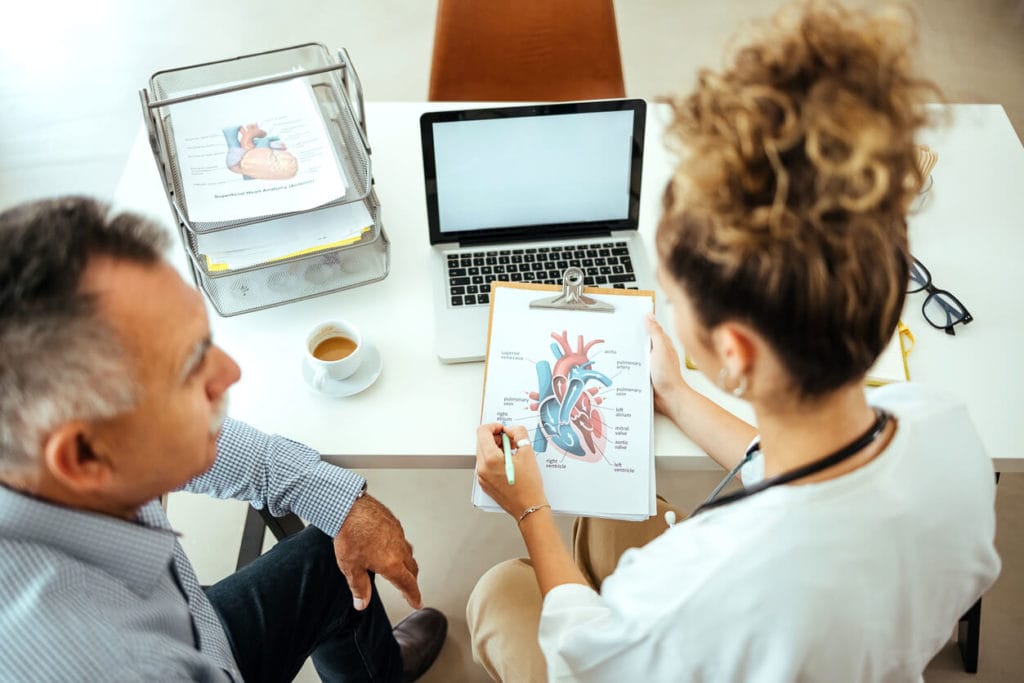
Imagine having a tool that helps you understand how well your heart is working. This tool exists, and it’s called an EKG or electrocardiogram. But who really needs to get an EKG? And why is it important?
Here is everything you need to know before getting an EKG.
What is an EKG?
An EKG is a simple test that records the electrical activity of your heart. It is like taking a snapshot of your heart’s rhythm and beats. Doctors use this information to see if your heart is working properly.
How Does an EKG Work?
The process is straightforward. Small sticky patches, called electrodes, are placed on your chest, arms, and legs. These sticky patches are connected to a machine that records your heart’s electrical signals. The test usually takes about 10 minutes and is painless.
Why is an EKG Important?
An EKG can help detect many heart problems. It can show if you have irregular heartbeats, heart damage, or poor blood flow to your heart. Catching these issues early can make a big difference in treating and managing heart conditions.
Who Should Get an EKG?
Here are some reasons why someone might need to get an EKG:
People with Symptoms
If you feel things like chest pain, shortness of breath (which means you can’t catch your breath easily), or dizziness (feeling lightheaded or like you might faint), it is important to get an EKG.
These symptoms could be signs that something is not right with your heart. The EKG can help doctors understand what is going on inside your body.
Athletes
Athletes put a lot of stress on their hearts. Regular EKGs can help ensure their hearts are healthy and can handle the extra strain.
Older Adults
As people get older, their hearts may need more care and attention. That is why older adults often get EKGs during their regular health checkups.
This test helps ensure that their hearts are working well and that there are no hidden problems. By keeping an eye on heart health, doctors can help older adults live healthier, longer lives.
People with Risk Factors
Not everyone will need an EKG throughout their lifetime. Here are a few risk factors that are associated with EKG testing:
Family History of Heart Disease
If heart disease runs in your family, you might be at higher risk of developing it. Regular EKGs can help keep an eye on your heart health.
High Blood Pressure
High blood pressure can stress your heart. An EKG can show if your heart is affected by high blood pressure, also known as hypertension.
Diabetes
Diabetes can increase the risk of heart disease. An EKG can help monitor your heart’s condition if you are dealing with diabetes.
High Cholesterol
High cholesterol can lead to blocked arteries, causing heart issues. An EKG can check if your heart is affected.
How Often Should You Get an EKG?
The frequency of EKGs (electrocardiograms) you need depends on your health and any risk factors you may have. Your doctor will help you figure out how often you should have this test.
Sometimes, it might be part of your yearly checkup, but if you have certain health conditions, you might need to get it done more often.
What Can You Expect During an EKG?
Knowing what happens during an EKG can make you feel more at ease.
Preparation
Preparing for an electrocardiogram is quite simple! You do not have to do much – just wear loose clothing so that the technician can easily place the electrodes on your skin.
Also, avoid putting on lotions because they can make it difficult for the electrodes to stick properly.
During the Test
When it is time for the test, you will lie down on a table. A technician will then place small sticky pads called electrodes on different parts of your body, like your chest and sometimes your arms and legs.
It is important to stay still and breathe normally while the machine records how your heart works. The whole process usually takes just a few minutes.
After the Test
Once the EKG is done, you will typically get the results almost immediately. Your doctor will look at the results and talk to you about what they mean.
If there are any problems or concerns, your doctor might recommend more tests, like an echocardiogram, which is a different way of checking your heart.
Finding EKG Services
You can find EKG services at hospitals, clinics, and outpatient centers. If you are wondering, “Where can I get an EKG near me?” a quick online search can help you find local options.
Echocardiogram Testing
What is an Echocardiogram?
An echocardiogram is different from an EKG – it uses sound waves to create pictures of your heart. It shows how your heart and its valves are working.
If you’re wondering, “What does an echocardiogram show?” it can reveal detailed images of your heart’s structure and function.
When to Get an Echocardiogram
Your doctor might recommend an echocardiogram if your EKG results are abnormal or if you have symptoms of heart problems.
Finding Services
You can look for “echocardiogram testing near me” to find local services. Echocardiogram testing is available at hospitals, clinics, and specialized centers. Searching for “outpatient echocardiogram near me” can help you locate convenient options.
Top Clinic to Get an EKG Near Me in Dallas and Fort Worth, TX
Your heart health is vital, and taking proactive steps can make a significant difference. At Palm Primary Care, our dedicated team of primary care doctors is here to support you in monitoring your heart and overall well-being. We offer state-of-the-art diagnostic services, including advanced EKG testing, to monitor heart health.
To learn more about our services or to schedule your private consultation, call us today at (866) 840-7728. We look forward to serving you!






